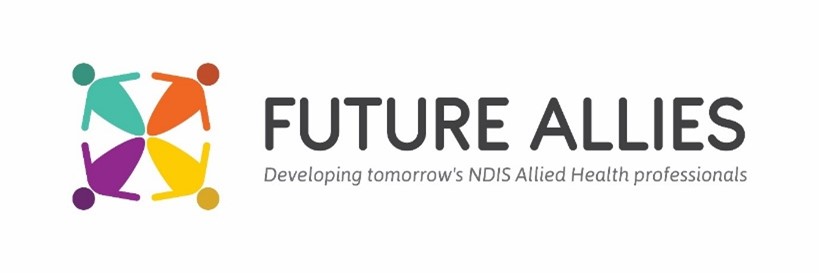 The content on this webpage is an adaptation of the Future Allies website, originally developed by Robyn Johnson and the Future Allies project team from the University of Sydney, Flinders University, Monash University and Curtin University with funding from the Australian Government Department of Social Services and those universities. ClinEdAus has permission from University of Sydney to share this adaptation as part of the page content. Should you wish to use any Future Allies content for purposes other than service provision, please contact Robyn Johnson at the University of Sydney directly to seek necessary copyright permissions.
The content on this webpage is an adaptation of the Future Allies website, originally developed by Robyn Johnson and the Future Allies project team from the University of Sydney, Flinders University, Monash University and Curtin University with funding from the Australian Government Department of Social Services and those universities. ClinEdAus has permission from University of Sydney to share this adaptation as part of the page content. Should you wish to use any Future Allies content for purposes other than service provision, please contact Robyn Johnson at the University of Sydney directly to seek necessary copyright permissions.
You can learn more about the findings of the research in the Future Allies Report
-
Benefits for NDIS participants
Working with a student can offer real benefits to NDIS participants
Often there is a concern that working with a student will use up your funding and mean a lesser service or outcome. However, it is important to note that any students you work with will be properly supervised and they can often do things for you that your Allied Health professional may not have the time to do. Our research has found that students can help NDIS participants to get more value from their service – giving more time to work through goals and questions, while bringing a new perspective. Students offer a new resource, who can allocate more time, to work through things with you – especially the non-treatment, real-life issues and goals that your Allied Health professional may not have time to address.
In the video 'Benefits to Participants and students' (04:31), you will hear from other NDIS participants, students and Allied Health professionals on the benefits they see coming from working with students.
Useful resources
Working with a student is an investment in future care
Beyond the benefits for each individual participant, we need student placements if we are to sustain the number of Allied Health professional available to work with participants across the NDIS. As a participant, you can contribute to improving student placements. Future Allies has found that placements work best when viewed as a partnership between participants, students, providers and educators.
-
Benefits for NDIS participants and providers
Taking on an Allied Health student placement is a real contribution to building the future workforce we need to provide high quality care to our NDIS participants. A student placement is an investment in the sustainability and capability of our future Allied Health workforce. There are also more immediate benefits to NDIS providers with students making it possible to do more for your participants. Students offer an opportunity to increase the time and support provided to your participants and enhance the value you create for those participants. You can hear from NDIS participants, providers, and students on how they see the benefits to providers through student placements in the video 'Benefits to providers' (03:41):
-
Benefits for educators
Benefits of student placements in the NDIS
Allied Health placements in the NDIS are critical to sustaining a viable and capable workforce for the disability sector. Encouraging and supporting students in NDIS placements is a strategic contribution to the quality of care for participants into the future. NDIS placements also provide more immediate benefits to participants and students. Participants benefit from the additional time that students bring, while students benefit from learning about the NDIS context – which is now influencing so many aspects of Allied Health practice.


